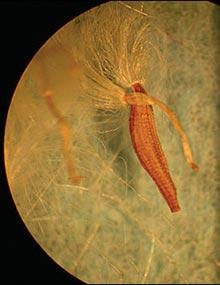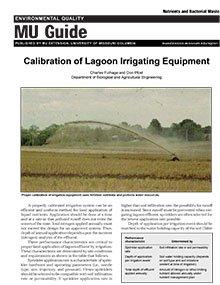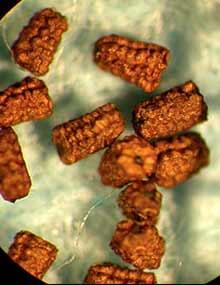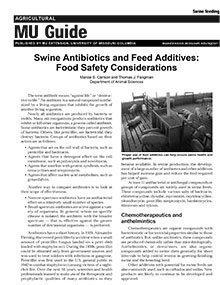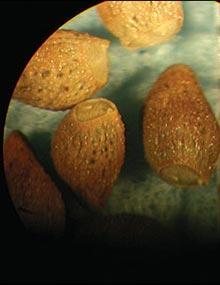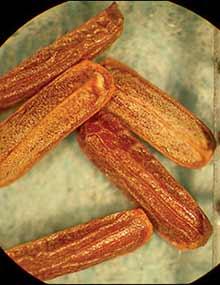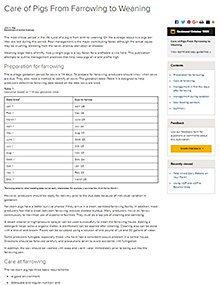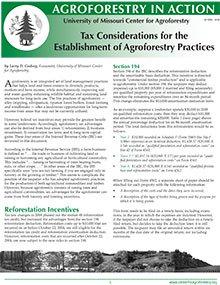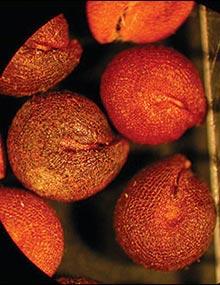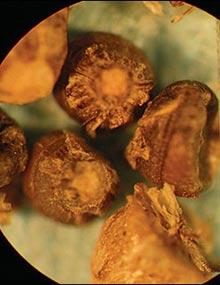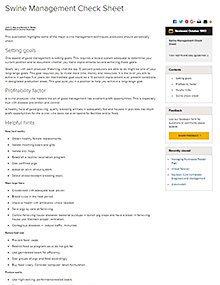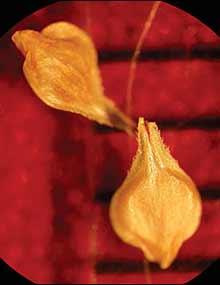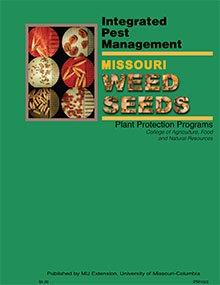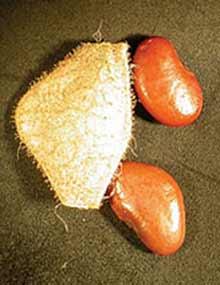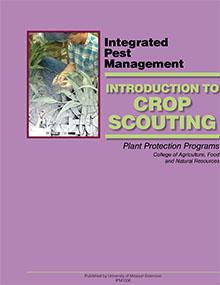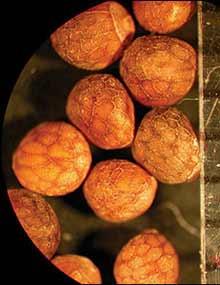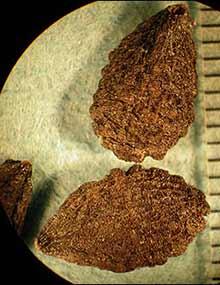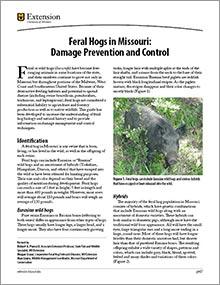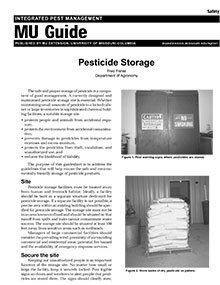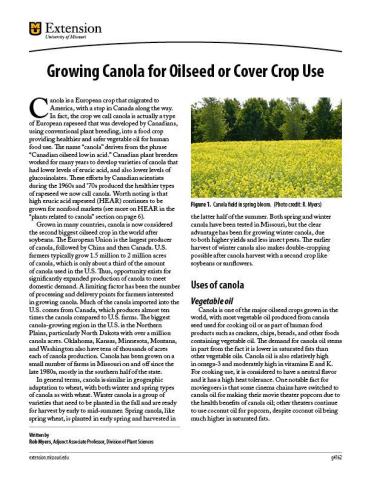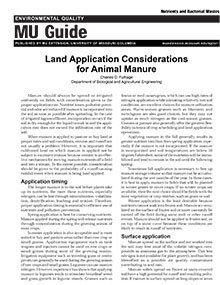Missouri Weed Seeds, Page 09
Reviewed
All members of Asclepiadaceae are known as milkweeds. There are at least 15 species of milkweeds that occur in the state.
Missouri Weed Seeds, Page 44
Reviewed
Of the nearly 280 genera of Scrophulariaceae (Figwort family), at least 25 are known to be in Missouri. The genera that contain mullein and speedwell are among the most common.
Antibiotics and Other Additives for Swine: Food Safety Considerations
Reviewed
The term antibiotic means "against life" or "destructive to life." An antibiotic is a natural compound synthesized by a living organism that inhibits the growth of another living organism.
Missouri Weed Seeds, Page 12
Reviewed
Boraginaceae (Borage family) also includes several nuisance plants known as “beggar’s lice” because their fruits readily attach to clothing and other articles.
Missouri Weed Seeds, Page 47
Reviewed
Of about 90 known genera of Verbenaceae (Vervain family), only three occur in the state. Most prevalent are the vervains, with seven species, most commonly encountered throughout Missouri.
Care of Pigs From Farrowing to Weaning
Reviewed
The most critical period in the life cycle of a pig is from birth to weaning. Visit our website to learn about the Care of Pigs From Farrowing to Weaning.
Managing Nitrogen to Protect Water Quality
Reviewed
How is nitrogen lost from the soil?Nitrogen is primarily lost by three pathways:
Tax Considerations for the Establishment of Agroforestry Practices
Reviewed
Learn tax advantages for planting trees for timber, using personal property for business use, investing in conservation and reporting timber sales as capital gains.
Missouri Weed Seeds, Page 15
Reviewed
Only a few members of Capparidaceae (Caper family), such as spider flower, occur in Missouri.
Measuring Manure Spreader Uniformity
Reviewed
Missouri Weed Seeds, Page 18
Reviewed
At least 18 different Chenopodium genera members, also known as lambsquarters, are present in Missouri. Kochia is also another important member of Chenopodiaceae (Goosefoot family).
Swine Management Check Sheet
Reviewed
This publication highlights some of the major swine management techniques producers should periodically check.
Missouri Weed Seeds, Page 21
Reviewed
Missouri is home to more than 200 species of sedges (Cyperaceae). Agronomically, yellow nutsedge, Cyperus esculentus, is considered to be the most problematic in prevalence of this family of plants.
Missouri Weed Seeds
Reviewed
Positive identification of pests, including weeds, is the first step in a sound integrated pest management program. This publication can aid in identifying weeds by their seed characteristics.
Missouri Weed Seeds, Page 24
Reviewed
Fabaceae (Pea family), the legume family, is one of the largest groups of broadleaf plants. Common members include clovers and various beans and peas.
Introduction to Crop Scouting
Reviewed
Editor's note
The following abstract describes a publication that is available only as a downloadable PDF.
Missouri Weed Seeds, Page 27
Reviewed
Common members of Lamiaceae (Mint family) not shown in this guide are henbit and purple deadnettle, which are two of the most prevalent winter annuals in Missouri.
Missouri Weed Seeds, Page 30
Reviewed
Devil’s-claw, also known as unicorn plant, is the only known species of Martyniaceae (Unicorn-plant family) to be present in Missouri.
Pesticide Storage
Reviewed
Learn guidelines to ensure the safe and environmentally friendly storage of pesticides.
